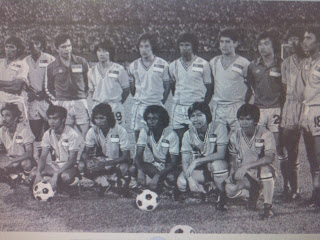Sun Tzu
Sun Tzu was a Chinese philosopher, strategist, Military General and a legendary historical figure. He was the author of "The Art of War". It was probably during the period of the Warring States, some said 544-496 BC. Everybody should know Sun Tzu.
In modern day, his teachings are being used in most parts of Asia and have become very popular in America and some parts of Europe. It has been extensively used in corporate teachings as well. I would venture that you can use Sun Tzu in any aspects of life. You can do it for sports, business, work practices and many more. Here are some of his quotes which I believe you will enjoy. Anyone will be impressed by the first two quotes. Read on.
Know thy self, know thy enemy. A thousand battles, a thousand victories.
The supreme art of war is to subdue the enemy without fighting. (Bruce Lee said as much when he said the greatest victory is to win without even having to fight).
Can you imagine what I would do if I could do all I can?
Confront them with annihilation, and they will then survive; plunge them into a deadly situation, and they will then live. When people fall into danger, they are then able to strive for victory.
The general who wins the battle makes many calculations in his temple before the battle is fought. The general who loses makes but few calculations beforehand.
In the practical art of war, the best thing of all is to take the enemy's country whole and intact; to shatter and destroy it is not so good.
He who is prudent and lies in wait for an enemy who is not, will be victorious.
If you are far from the enemy, make him believe you are near.
There is no instance of a nation benefitting from prolonged warfare.
Supreme excellence consists in breaking the enemy's resistance without fighting.
Invincibility lies in the defence; the possibility of victory in the attack.
To fight and conquer in all our battles is not supreme excellence; supreme excellence consists in breaking the enemy's resistance without fighting.
Regard your soldiers as your children, and they will follow you into the deepest valleys; look on them as your own beloved sons, and they will stand by you even unto death.
All men can see these tactics whereby I conquer, but what none can see is the strategy out of which victory is evolved.
You have to believe in yourself.
The opportunity to secure ourselves against defeat lies in our own hands, but the opportunity of defeating the enemy is provided by the enemy himself.
All war is deception.
Pretend inferiority and encourage his arrogance.
He who knows when he can fight and when he cannot, will be victorious.
Victorious warriors win first and then go to war, while defeated warriors go to war first and then seek to win.
Be extremely subtle, even to the point of formlessness. Be extremely mysterious, even to the point of soundlessness. Thereby you can be the director of the opponent's fate.
Thus, what is of supreme importance in war is to attack the enemy's strategy.
If ignorant both of your enemy and yourself, you are certain to be in peril.
The good fighters of old first put themselves beyond the possibility of defeat, and then waited for an opportunity of defeating the enemy.
The good fighters of old first put themselves beyond the possibility of defeat, and then waited for an opportunity of defeating the enemy.
The quality of decision is like the well-timed swoop of a falcon which enables it to strike and destroy its victim.
The skilful employer of men will employ the wise man, the brave man, the covetous man, and the stupid man.
If we know that our own men are in a condition to attack, but are unaware that the enemy is not open to attack, we have gone only halfway towards victory.
If fighting is sure to result in victory, than you must fight, even though the ruler forbid it; if fighting will not result in victory, then you must not fight even at the ruler's bidding.
It is only the enlightened ruler and the wise general who will use the highest intelligence of the army for the purposes of spying, and thereby they achieve great results.
Now the reason the enlightened prince and the wise general conquer the enemy whenever they move and their achievements surpass those of ordinary men is foreknowledge.
The general who advances without coveting fame and retreats without fearing disgrace, whose only thought is to protect his country and do good service for his sovereign, is the jewel of the kingdom.
Hence that general is skilful in attack whose opponent does not know what to defend; and he is skilful in defense whose opponent does not know what to attack.
The enlightened ruler is heedful, and the good general full of caution.
When envoys are sent with compliments in their mouths, it is a sign that the enemy wishes for a truce.
Prohibit the taking of omens, and do away with superstitious doubts. Then, until death itself comes, no calamity need be feared.
I told you I like the first two but equally I liked both the last two as well and all other in between.
I told you I like the first two but equally I liked both the last two as well and all other in between.
Use them well.



Comments